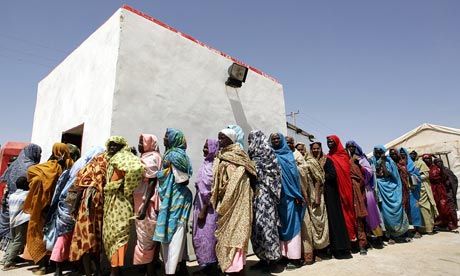
Universal health coverage has never been higher up the policy agenda. At a recent ministerial meeting organised by the World Health Organisation (WHO) and the World Bank, WHO director general Margaret Chan said that "universal health coverage is the single most powerful concept that public health has to offer".
At the end of 2012, the United Nations adopted a new resolution urging all countries to launch affordable systems that cover all citizens. "We can hold member states to account because of the resolution", Oxfam health policy adviser Ceri Averill said.
While support for universal access to healthcare is increasingly widespread, how to fund it remains hotly debated, with taxation, user fees and insurance being the conventional options. Today though, innovative financing models are gaining traction, with emerging financial instruments such as the International Finance Facility for Immunisation, advanced market commitments and other models of results-based financing for health offering promising alternatives to traditional ineffective funding options.
So, which way forward? Is innovative financing the answer or do user fees still have a place in promoting global healthcare coverage? How does the wider development context (such as stagnant or shrinking aid budgets, a burgeoning global population or the rise of the poor in middle income countries) influence decision-making in this policy area?
To consider these and other approaches to financing universal health coverage, join our live chat panel on Thursday, 28 March at 1pm GMT.
The live chat is not video or audio-enabled but will take place in the comments section (below). If you would like to join our panel, or submit your views ahead of the chat, please email globaldevpros@theguardian.com. Follow our tweets using the hashtag #globaldevlive
Panel
David Evans, director of health systems financing, World Health Organization. @WHO
David currently works with countries to develop or modify health financing systems to move closer to universal health coverage. David was the principal author of the World Health Report 2010 on Health Systems Financing: the Path to Universal Coverage.
Annie Haakenstad, project officer, Institute for Health Metrics and Evaluation (IHME) at the University of Washington. @IHME_UW
Annie Haakenstad manages research on health financing, costing and constraints as well as evaluations of malaria and HIV-related interventions in Sub-Saharan Africa. She was a key contributor to IHME's Financing Global Health 2012, which outlines trends in development assistance for health and government health expenditure.
Eric Friedman, project leader of the Joint Action and Learning Initiative, O'Neill Institute for National and Global Health Law, Georgetown University Law Center. @oneillinstitute
Eric works to develop a framework convention on global health, a global health treaty that would be grounded in the right to health and aimed at closing national and global health inequities. Eric previously worked on health and human rights at Physicians for Human Rights.
Simon Wright, head of child survival, Save the Children. @morningsimon
Simon leads global policy and advocacy activities on health and child survival. Simon has previously worked at the NHS, the All-Party Parliamentary Group on Aids and ActionAid. Simon is a member of the World Bank Health Nutrition & Population CSO Consultative Group and the Gavi CSO Steering Committee.
Elaine Ireland, head of policy, Sightsavers. @EIreland1
Elaine is responsible for influencing key international development agencies including DfID, WHO and the World Bank on international health issues such as eye health, blindness, disability and social inclusion. Elaine is a specialist on HIV/Aids, health systems strengthening and health financing.
Dr Sneh Khemka, medical director, Bupa. @Bupa
Sneh trained as a doctor in the UK before qualifying as a general surgeon, and specialising in ophthalmic surgery. Sneh has worked with and inspected hospitals throughout the world, from Papua New Guinea to China and Southern India.
Biodun Awosusi, research fellow, African Health Dialogues. @awocelsius
Biodun is a medical doctor and universal health coverage advocate. He is a postgraduate student at University of Liverpool, where he is studying international management with a major in management of health systems.
Josephine Borghi, senior lecturer, London School of Hygiene & Tropical Medicine. @LSHTMpress
Jo is a health economist specialising in the evaluation of health financing initiatives in low income settings. Jo previously worked for the Ifakara Health Institute in Tanzania, researching health financing equity and modelling the affordability of achieving universal coverage.

